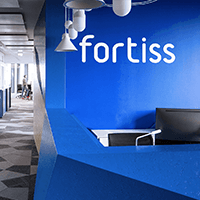Climate-friendly food consumption – knowing how
In a study recently published study by the Institute for Public Opinion Research (ifD) in Allensbach, consumers were asked about their eating habits and what significance this has for climate protection. More than half of the study participants indicated they are willing to adapt their eating habits as a way to contribute to climate protection and three-fourths said they would be in favor of climate labels on food packaging for instance. The vast majority of the respondents want to do something for climate protection when it comes to eating, but are unsure of exactly where to start.
The research project “Sustainable Buying Assistant” (KI-SusCheck) aims at minimum to make healthy and sustainable food buying possible for consumers. One goal is to significantly streamline complicated buying decisions by quickly and easily making important consumer information available in the app regarding the origin, cultivation and manufacture of food products, such as how much water is used to produce a product, how long the transport route was or how much CO2 was used.
This makes it possible to maintain an overview of the numerous and often complex aspects of sustainability. Knowledge-based AI elements simplify the decision-making process through a sustainable selection of products and offer better orientation in the buying environment.
Reaching the goal with proven cooperations
The three-year research project “Sustainable Buying Assistant for more Healthy and Sustainable Food Consumption” was launched as a joint effort in February 2021 by fortiss, IBM and the Center of Competence for Nutrition (KErn). Financial support is provided by the Germany Ministry of Food and Agriculture (BMEL), which has funded eight select AI alliance projects since 2020 with more than 10 million euros. KErn and fortiss have already successfully implemented the digital raw materials exchange. fortiss has also worked with IBM on other AI projects within the framework of the Center for AI.
With the development of a web-based app, the partners want to create more transparency in the food product chain and contribute to food safety and sustainability. Fortiss project manager Peter Kuhn is convinced of the benefits for consumers. “With advanced technologies such as decentralized clouds, AI and blockchains, it’s easier to make verifiable information available related to the manufacture of food. We want to exploit theses advantages in the KI-SuCheck project in order to support consumers during the buying experience.”
The AI application relies on blockchain data from IBM Food Trust, as well as other data sources that were selected and created within the framework of the research project. The information be linked in a decentralized cloud in a verifiable and trustworthy manner and made accessible via a virtual voice assistant (chatbot). Relevant sustainability criteria will be defined in the project, plus a calculation model will be created. A virtual voice assistant (chatbot) will be integrated into the application as well and is designed to guide the consumer through a simple dialogue and make the information available – quickly and flexibly. The buying assistant is scheduled to be additionally available as a web app in 2024.


